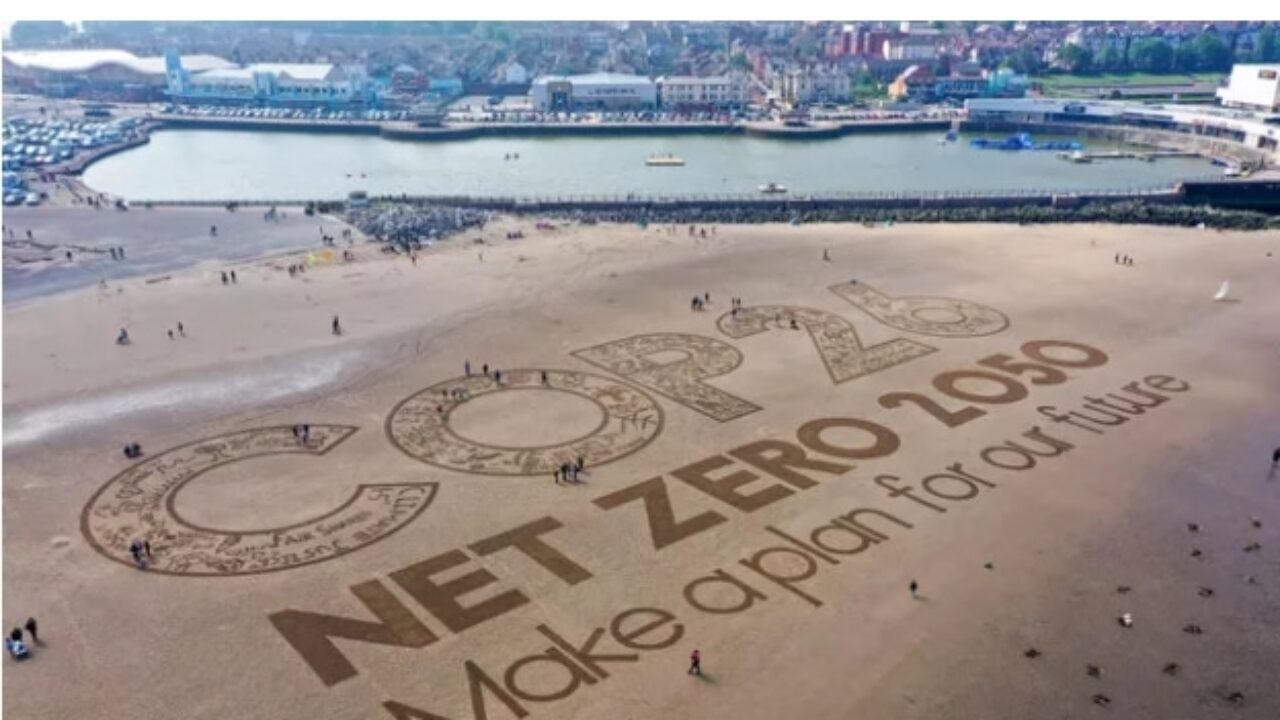The Nigerian government has pledged to reduce the impact of climate change and attain net-zero emission by 2050 in fulfillment of the Paris Agreement.
On ratification of the Paris Agreement in May 2017, the Nigerian government agreed to limit the temperature increases to 1.50C above a pre-industrial level; increase the ability to adapt to the adverse impact of climate change and make finance flows consistent with low gas emissions.
As a sign of commitment to achieving net-zero emissions by 2050, the Nigerian government in July this year joined other countries to submit an updated Nationally Determined Contribution (NDC) to the United Nations.
The NDC document showed that the government increased its climate change ambition by promising to reduce Green House Gas emissions by 20 percent unconditionally and by 47 percent conditional on international support by 2030.
The Nigerian government hopes to eliminate kerosene lighting by 2030, increase the uptake of bus rapid transit, achieve 50 percent reduction in crop burnt residue and mainstream gender across all sectors, among other plans.
One of the ways the government plans to achieve this is through a transition from fossil fuel to cleaner alternative energy sources like solar and other renewable energy sources.
It is expected that the solar power strategy will foster broader access to power generation through alternate and cleaner energy solutions, as well as reduce the dependence on fossil fuel emissions.
READ ALSO: Climate Change Poses “Serious” Threats To Nigeria’s Economy
The government is also planning to expand the country’s LPG to ensure a transition away from the use of charcoal, fuel, wood and kerosene, which emits a high amount of CO2 and replace with clean cooking LPG Cylinders.
As Nigeria prepares to join other countries at the 26th United Nations Climate Change Conference (COP26), activists in Nigeria are looking beyond the numerous plans of the Federal Government rooting for urgent implementation of the NDC.
Allocate Funds To Climate Change, ERA Advises
As a country that is one of the highest emitters of greenhouse gases and vulnerable to the impact of climate change, more commitment is required from the Nigerian government, the Programme Manager, Climate Campaign at Environmental Rights Action (ERA)/ Friends of the Earth Nigeria, Olamide Martin, said in a telephone interview.
Martin, in a telephone interview, said that to be able to attract investment that will be used to finance the plans contained in the NDC, there must be budgetary allocations for the implementation of some of the plans.
According to him, the Department of Climate Action in Nigeria should be adequately funded to take on some of the critical climate change projects.
He said, “Investors want to see the level of financial commitment of the government to climate change before funding any project.”
Learn Best Practices At COP26
Glory Oguegbu of Climate Smart Nigeria noted that the impact of climate change in Nigeria can be seen in the Northern part of Nigeria in terms of intense heat and rising sea levels in the Southern part of the country. She said the Nigerian government, investors, entrepreneurs and activists need to learn about tested and trusted actions to mitigate, adapt and finance the climate crisis at the COP26.
“The impact of climate change in the country has led to poverty, poor food production, flooding, diseases and destruction of properties,” Oguegbu added.
According to her, the government has deployed different strategies to adapt to climate change and mitigate the impact of climate change in the energy sector with increased investment in renewable energy and mitigating erosion within the Southern part of the country.
Already, Nigeria has developed an Energy Transition Plan, that will ensure universal access to cleaner energy sources such as solar and natural gas by 2030 and net-zero targets by 2050.
Nigeria Needs $400 billion To Achieve Net-Zero Emission
The Minister of State for Power, Mr Goddy Jedy-Agba, earlier this year estimated that investments of over $400 billion will be required for Nigeria to achieve universal energy access by 2030 and net-zero emission targets by 2050.
Jedy-Agba said the country is facing many challenges in delivering energy to the 25 million Nigerians without access to energy using solar home systems and mini-grids.
Reiterating Nigeria’s position regarding a just transition from fossil fuels to clean energy, ahead of the Net-zero Emissions 2050 target, Vice President Yemi Osinbajo said, “We are concerned, amongst other things, first about some of what has been going on, especially around gas as an effective transition fuel, and how many of the Development Finance Institutions (DFIs) and some countries are insisting that gas projects should be defunded.
“This is a principal concern to us; it is one that we have made central to our advocacy and it is one of the issues that we intend to promote at the COP26.”
“We have done the costing for it and all of what is required to be able to hit net-zero by 2050. Also, what the implications would be, given the constraints there, and how realistic it would be to get to net-zero by 2050 or not,” Osinbajo added.













